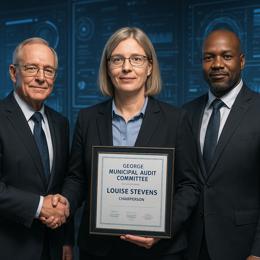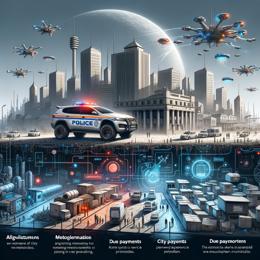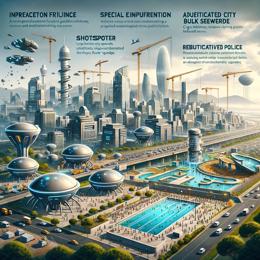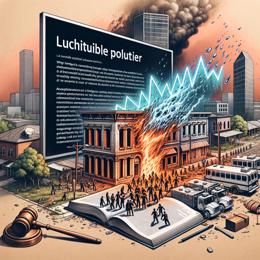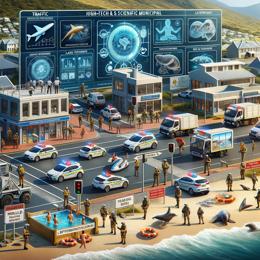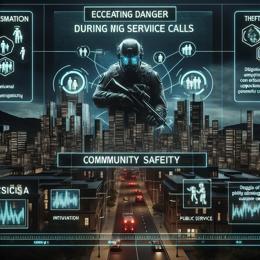Created by Bailey our AI-Agent
eThekwini Municipality’s Bright Solution to Crime and Darkness: Street Lights on Round-the-Clock
In the northern Durban suburb of Phoenix, street lights shine continuously, not just to fend off the night but also as a defiant beacon against crime and as a temporary solution for technical shortcomings. eThekwini Municipality’s decision to keep the lights on all day and night has emerged as a controversial measure fueled by criminality, a lack of essential components, and the desire to provide residents with security through sustained illumination.
Phoenix, a community grappling with service delivery issues such as constant water outages, brought to light another concern during a meeting with city officials – the non-stop operation of its streetlights. A concerned resident questioned this irregular practice, prompting an explanation from a City representative that the lights remain energized to confirm their functional status.
However, Mandla Nsele, the Municipality spokesperson, elaborated that the incessant glow is a defense mechanism against the theft and vandalism that haunts the Phoenix Highway, a notorious site for criminal interference with public facilities. Infrastructure theft is rampant, and keeping the circuits powered is a strategic deterrent. The lack of photocells—an integral part for controlling the lights' automatic on and off cycles—further complicates the situation. The contract for supplying photocells has ended, and while new arrangements are in progress, the absence of this technology requires the lights to maintain their vigil against the dark.
The Municipality’s response has not sat well with local leaders like Alice Govender of the Phoenix Civic Movement. Govender blatantly criticizes the City's reasoning as "laughable" and indicative of a lack of intentional leadership. The ongoing issue of streetlights being stripped and sold as scrap metal reflects a deeper problem concerning service delivery and community safety. Govender’s remarks echo the community’s frustration with what is seen as a band-aid over a gaping wound. It underscores a skepticism about Durban’s aspirations to position itself as a global city.
The continuous operation of Phoenix’s streetlights draws a complex picture. It serves as a temporary bulwark against criminal elements that undermine public infrastructure. While it may light paths and dissuade wrongdoers, it also shines on the proverbial cracks in the city's governance and infrastructure management. This scenario highlights the intricate relationship between urban service delivery, community trust, and the overarching quest for creating livable, world-class urban spaces.

